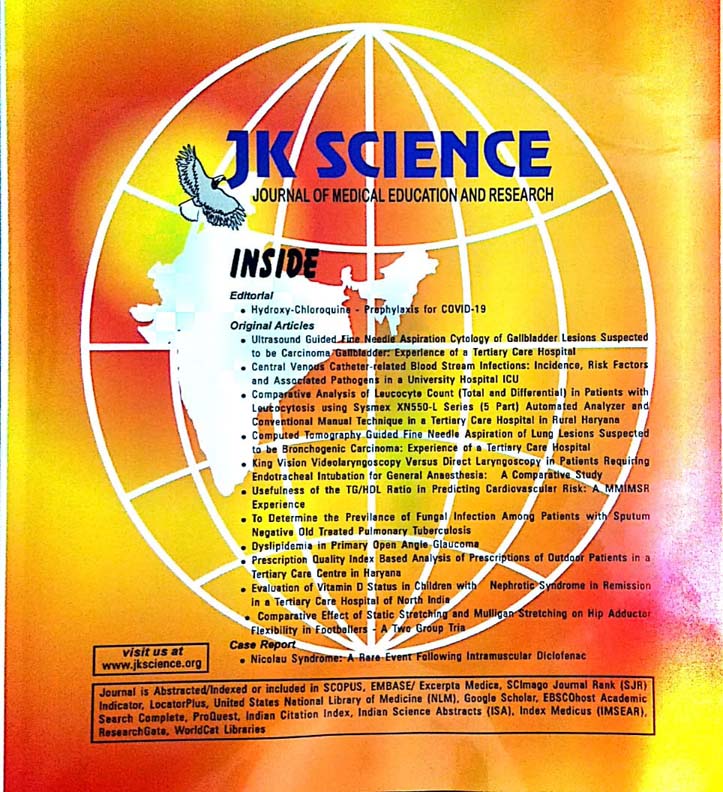Awareness and Attitude Towards Labour Analgesia in Rural Northern India: A Cross-Sectional Questionnaire Based Study
Keywords:
Awareness, Labour analgesia, Labour pain, QuestionnaireAbstract
Background: The experience of labour is complex and subjective. However, as a consistent finding, labour pain is ranked high on pain rating scale when compared to other painful life experiences. So, a change can affect all dimensions of pregnant women and her family life.
Aim: The aim of this study was to assess the level of awareness of labour analgesia among the women in rural northern India and factors which prevent them from opting for labour analgesia.
Material and Methods: This was a cross sectional Questionnaire based study conducted in Government Medical College, Kathua, J&K. A self-made Questionnaire was used to obtain demographic details, awareness and attitude of pregnant women towards labour analgesia. A total of 300 women took part in the study. Data was analysed by SPSS 20. Frequencies and percentages were calculated to express the results.
Results: Out of 300 women, 68% belonged to rural areas. 10% of the women could not read or write. 84% of the women were unaware of labour analgesia. Out of aware participants, no one got the information from primary health care workers like Asha worker or a midwife. About 86% of the participants said that the labour pains are either severe or unbearable, yet only 32% were ready to take labour analgesia. Out of unwilling participants, about 40% of the women believed that it would be harmful to their baby.
Conclusion: Majority of the women believed that the labour pains are severe to unbearable yet desire to bear pain is prevalent. Health care workers should be trained to deliver knowledge about labour analgesia to all women in antenatal period.
Downloads
Downloads
Published
How to Cite
Issue
Section
License
Copyright (c) 2021 JK Science: Journal of Medical Education & Research

This work is licensed under a Creative Commons Attribution-NonCommercial-ShareAlike 4.0 International License.





